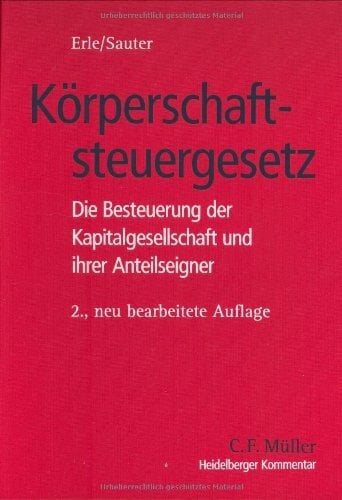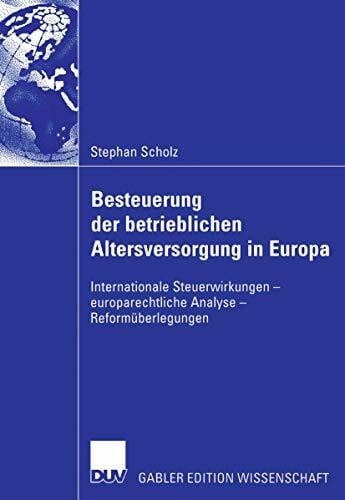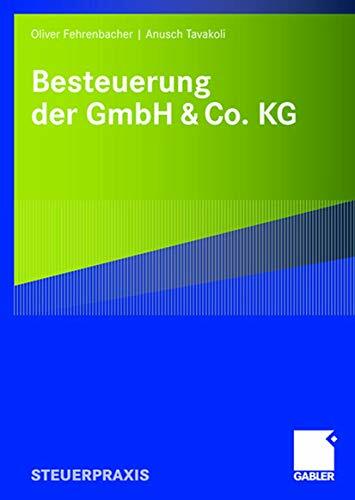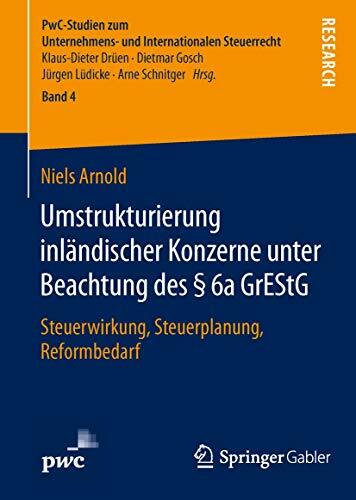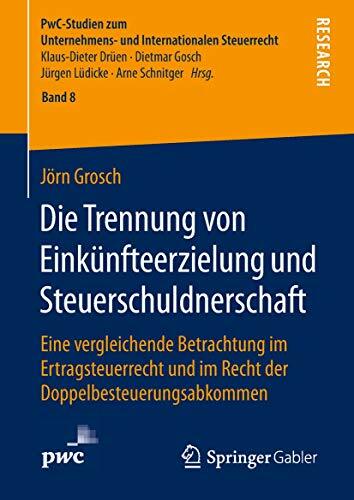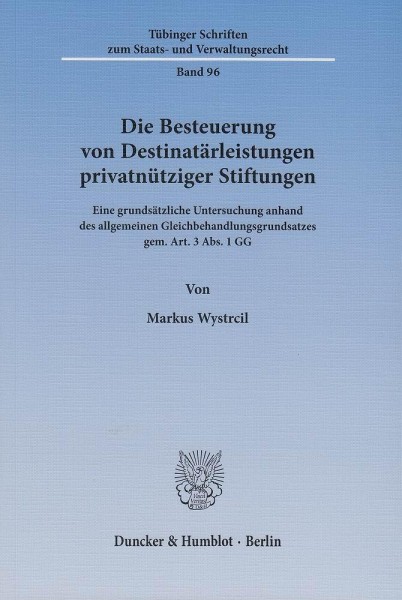
Die Besteuerung von Destinatärleistungen privatnütziger Stiftungen
Kurzinformation
inkl. MwSt. Versandinformationen
Artikel zZt. nicht lieferbar
Artikel zZt. nicht lieferbar

Beschreibung
In particular in absence of capable and willing successors, a foundation may be a means for an appropriate succession planning structure. Unlike distributions from corporations, in Germany the tax treatment of distributions received by the foundation's beneficiaries is far from being clear. Ongoing distributions had generally been classified as other taxable income (sec. 22 no. 1 of the Income Tax Act, ITA). But with effect from 2001, a new income element has been introduced in sec. 20 sub. 1 no. 9 of the ITA. According to this, distributions are considered to be a sort of income from capital investments, if they are - viewed economically - comparable to profit distributions form a corporation. However, the provision does not say, when distributions do so. This raises the questions, whether and to what extent this could be affirmed, and, what this means with respect to sec. 22 no. 1 of the ITA. In addition, sec. 20 sub. 1 no. 9 of the ITA also applies in case of dissolution, although the transfer of assets to the beneficiaries also triggers inheritance and gift tax. Therefore and in order to bring the relevant provisions or at least their application in line with the overall system of taxation as well as the constitution, esp. the principle of equal treatment, distributions are to be qualified as an income from capital investments, if - roughly summarized - the respective beneficiaries (i) are determined as the final recipients of both the foundation's income and principal, (ii) are in a position to exert significant influence on the statutory bodies and to get income distributed, and (iii) do actually receive such income. As a consequence, if these requirements are met, the distribution of retained income is allowed to be taxed with income tax as well when dissolving the foundation, but not with inheritance and gift tax; the latter is only to be based on distributed principal. von Wystrcil, Markus
Produktdetails

So garantieren wir Dir zu jeder Zeit Premiumqualität.
Über den Autor
Markus Wystrcil wurde 1981 in Ostfildern-Ruit bei Stuttgart geboren. Nach der Ausbildung für den gehobenen Dienst in der Baden-Württembergischen Finanzverwaltung, die er als Diplom-Finanzwirt (FH) im Jahr 2004 abschloss, studierte er Rechtswissenschaften in Tübingen. Dem Ersten Staatsexamen in 2008 folgte das Referendariat in Stuttgart mit einer Station bei einer der vier größten Steuerberatungsgesellschaften in New York. Das Zweite Staatsexamen legte er 2010 ab. Sodann widmete er sich seiner Promotion bei Prof. Dr. Ferdinand Kirchhof an der Universität Tübingen. Markus Wystrcil ist im Bereich Steuerrecht einer renommierten Großkanzlei in Stuttgart seit 2012 als Rechtsanwalt tätig, seit 2014 auch als Steuerberater.

- hardcover
- 1095 Seiten
- Erschienen 2009
- Vahlen

- hardcover
- 507 Seiten
- Erschienen 2009
- C.H.Beck

- paperback
- 135 Seiten
- Erschienen 2014
- DWS Steuerberater Medien GmbH

- Gebunden
- 768 Seiten
- Erschienen 2015
- zerb verlag

- Gebunden
- 944 Seiten
- Erschienen 2023
- Schäffer-Poeschel

- hardcover
- 454 Seiten
- Erschienen 2000
- Erich Schmidt Verlag

- hardcover
- 855 Seiten
- Erschienen 2013
- Schäffer-Poeschel

- Gebunden
- 2983 Seiten
- Erschienen 2021
- C.H.Beck

- hardcover
- 2079 Seiten
- Erschienen 2015
- Kluwer Law International
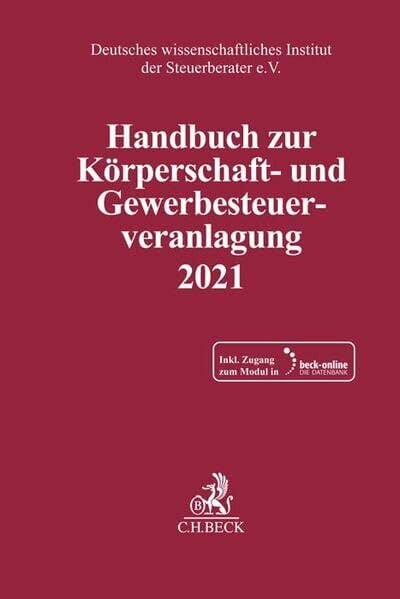
- Gebunden
- 193 Seiten
- Erschienen 2022
- C.H.Beck

- Leinen
- 882 Seiten
- Erschienen 2015
- C.H.Beck

- Gebunden
- 2744 Seiten
- Erschienen 2020
- C.H.Beck

- hardcover
- 428 Seiten
- Erschienen 2025
- C.H.Beck
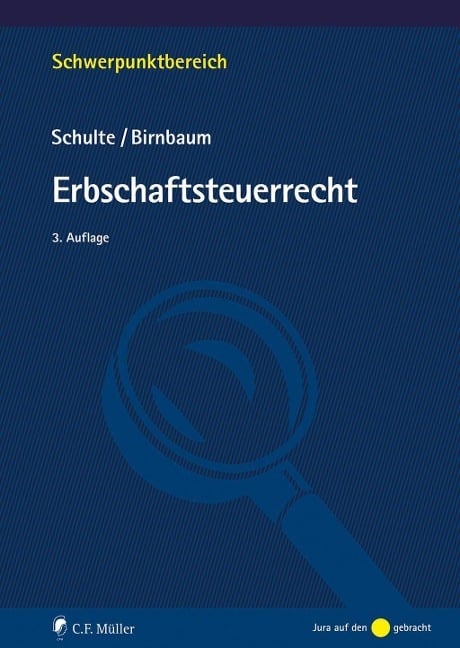
- Kartoniert
- 270 Seiten
- Erschienen 2022
- C.F. Müller












